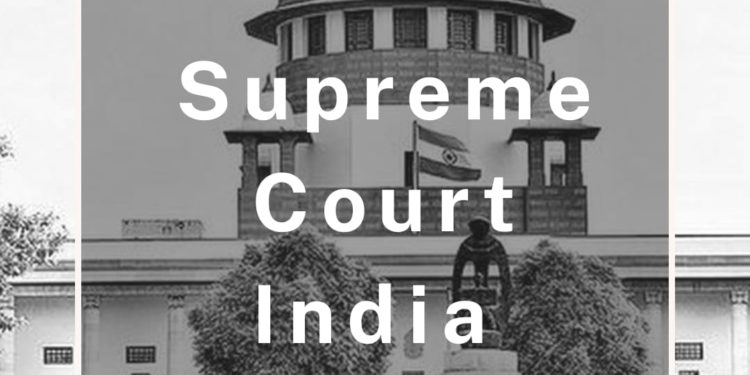This is a Supreme Court judgement that was given in the year 2017 which has been used as reference in cases where relatives of a husband are falsely implicated in dowry death of a woman.
The appellants in this case are the sister-in-law and brother-in-law (husband’s sister and her husband) of the deceased. The High Court of Judicature at Patna in Criminal Appeal had dismissed the criminal appeal affirming their conviction and sentence under Section 304B read with Section 34 (IPC). The duo then appealed to Supreme Court pleading not guilty.
Case:
Tamkinat Ara alias Bulbul got married to Md. Parwez Alam and she used to reside with her in-laws after her marriage. The deceased woman used to live with Md. Parwez Alam (husband), Abdul Gaffar (father-in-law), Baitun Nisha (mother-in-law), Bibi Parwana Khatoon (sister of husband), and her husband Md. Hasan (both appellants).
Md. Faisal (brother of the deceased woman) had alleged that his sister was killed by setting her on fire by all of the above accused. He claimed that on receiving telephonic information from the father-in-law of the deceased, Faisal went to see his sister, however, found that she had died of burn injuries.
Based on the FIR registered by Faisal a case was registered against all five members named under Section 304B read with Section 34 IPC at the Khazanchi Hat, Madhubani police station.
Arti Kumari Jaiswal, Station House Officer, started the investigation. The dead body of the deceased was sealed and sent for post mortem examination. Dr Umesh Kumar of Sadar Hospital, Purnea, conducted post mortem examination of Tamkinat’s dead body and concluded the following ante mortem injuries: –
- Rigor mortis present in all four limbs and trunk
- The tongue was protruded between teeth
- A burned (burnt) blood clot from/in-ear opening
- 100% burn of five degrees with a smell. Key oil and roasted smell, line of redness along burn area absent, vesication and sign of inflammation was absent, the formation of granulation tissue absent, indicating post mortem burnt.
The Medical Officer opined that the deceased died of asphyxia due to strangulation. Later, an investigation was conducted and a charge sheet was filed against all the five accused.
Accused Baitun Nisha (mother-in-law of the deceased) died during the trial, and thus the trial court proceeded against the remaining four accused. The prosecution evidence appeared to have been put on the accused under Section 313 of the Criminal Procedure Code. The trial court, after hearing the parties, found all the four accused guilty of offences punishable under Section 304B read with Section 34 IPC, and convicted them accordingly.
Conviction
Md. Parwez Alam (husband of the deceased) was sentenced to rigorous imprisonment for ten years, and each one of the remaining three convicts was sentenced to seven years of rigorous imprisonment. Aggrieved by the judgment and order passed by the trial court in Sessions Trial three appeals were filed before the High Court. The High Court, after hearing the parties, allowed the appeal of the father-in-law of the deceased but maintained the conviction and sentence recorded against the other three. Hence, this appeal was filed in Supreme Court through special leave by sister-in-law Parwana Khatoon and brother-in-law Md. Hasan.
Supreme Court Observations
The court went through the judgment and order passed by the trial court in which the trial court has mentioned the name of defense witnesses but not discussed as to why their testimony to the fact that married sister-in-law (of the deceased) and her husband used to live in village called Sabutar, was not believed. The High Court has also committed the same error.
Apart from this, in support of their plea, there were three documents filed on behalf of the appellants, which showed the address of appellant No.1. After having oral and documentary evidence discussion, the top court said that both the lower and high court had erred in charging the appellants under Section 304B read with Section 34 IPC.
The court noted that the evidence put on record sufficiently demonstrated that the appellants used to live in a different village. Therefore, the court was inclined to allow the present appeal. Accordingly, conviction and sentence recorded against the both Bibi Parwana Khatoon and Md. Hasan were set aside. They were acquitted calling for their release from the jail.
CLICK ON THE LINK TO READ FULL ORDER
ALSO READ –
http://voiceformenindia.com/in-the-law/abetment-to-suicide-bail-india/
We are on Telegram. You can also join us on our Facebook Group
Join our Facebook Group or follow us on social media by clicking on the icons below
If you find value in our work, you may choose to donate to Voice For Men Foundation via Milaap OR via UPI: voiceformenindia@hdfcbank (80G tax exemption applicable)






























